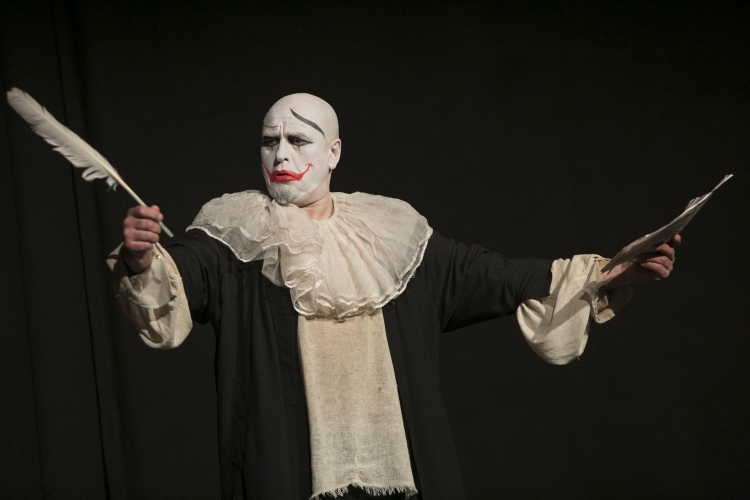It took four years for Hassan Blasim to walk from Iraq to Finland, where he now resides as a refugee. As a child he dreamt of becoming a writer, because writing gave his life meaning. Blasim made a thought-provoking point: Iraqis consider him westernised, while at the same time he is not fully accepted by Finnish people either. This is a complicated situation that can lead you to believe you do not belong anywhere.
Finnish-Swede Mathias Rosenlund uses his books to address a topic that Finns find quite unpopular: poverty. He believes that people are reluctant to admit to themselves that not everyone around them is well off and that some people find it difficult to cope financially.
British writer Mike Collier, who lives in Latvia, has sought to encourage local Latvian writers to come forward with their previously unpublished works by participating actively in Latvian literary life and society. Satirical authors were persecuted in the 1930s and continue to be persecuted even now. Satire hurts people’s feelings and people take it very seriously. The way society resonates in literature matters a lot to people.
Otto Kaarel Altroff, who studies at Tallinn Secondary School of Science, went to Lake Peipsi in order to get to know the culture of the Old Believers and to live in their homes for a few days, surrounded by their culture. Altroff stated that when it comes to strangers, national minorities are often protective of their culture in order to preserve it. In order to be able to explore a foreign culture, we have to be considerate, empathic and friendly towards it. The more aware people are of different ethnic groups, the greater the harmony in which we can all live together.
It is impossible to plan creation, because creation is like nature and always seems to have the upper hand, said Rawdna Carita Eira, a Sámi poet and playwright. Lapland requires people to adapt to it – you take what you are given instead of taking what you want. Rich in natural resources, Lapland is of great worth to the countries where it is located, but Sámi culture is closely intertwined with notions of land, water and air. To sing about something or someone in the Sámi language is to describe everything in its entirety. Sámi people do not live in a closed society. They welcome visitors and work together with other cultures. These people, who have historically been repressed, are now reaching out to others through different art forms so as not to be forgotten.
Poets Chriman Karim and Juha Kulmala, who participated in the Finnish Poetry Stage project, and Marja Mäenpää, the project’s manager, agreed that translating poetry reveals that all poets deal with topics such as love, sadness and nature, regardless of where they live.
Azar Mahloujian was one of the supporters of the revolution in Iran. She worked in a library and was a respected member of society. When she came to Sweden in 1982 she suddenly became a nobody. Her education and work experiences seemed to mean nothing at all. It was as if she were a helpless child. But now she is free. She has proven her worth and rebuilt herself, so to speak. She now lives without censorship.
Anne-Ly Reimaa, the deputy secretary general for Cultural Diversity with the Estonian Ministry of Culture, said that common fictional characters bring people from different cultural backgrounds closer together and help them communicate with one another. This is why the Ministry of Culture supports the extensive translation of Estonian children’s literature.
The Nordic Council of Ministers’ Office in Estonia organised the fourth Nordic-Baltic literature forum in cooperation with the Estonian Publishers’ Association, the Estonian Writers’ Union, the National Library of Estonia, Tallinn Central Library, the Estonian Librarians Association, the Finnish Institute in Estonia and the Nordic embassies in Tallinn. The literature forum also served as the opening of Tallinn Book Fair.
View the gallery of the literature forum 2016 here. For more information about the literature forum launched by the Nordic Council of Ministers’ Office in Estonia in 2013, click here.

